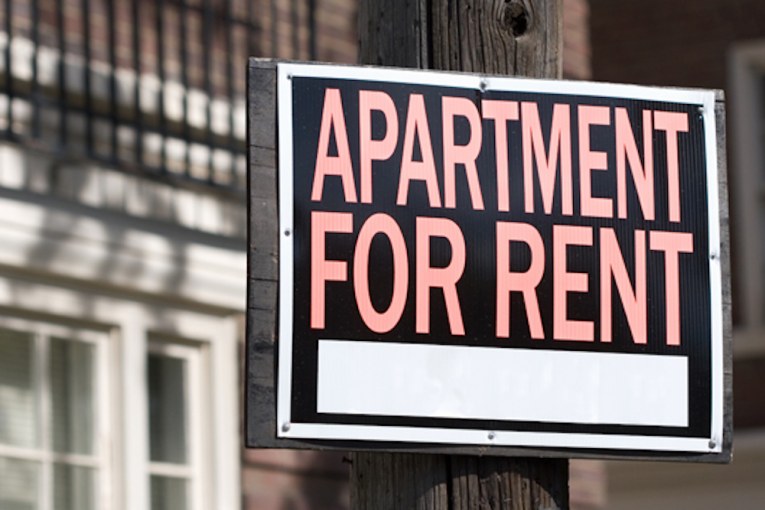

Special to the Vanguard
The emergency order preventing evictions in California is about to expire, and legislative action is needed prior to September 1 in order to protect millions of renters across the state.
The legislature is working on the COVID-19 Tenant Relief Act, which would protect renters from evictions due to a COVID-related hardship until February 1, 2021, but still hold them responsible for paying unpaid amounts to landlords. It also provides additional legal and financial protections for tenants, provides statewide consistency on local ordinances, and protects small landlords by extending the Homeowners’ Bill of Rights’ anti-foreclosure protections.
With the constitutional deadline of August 31 fast approaching, Senate President pro Tempore Toni G. Atkins (D-San Diego), Senator Anna Caballero (D-Salinas) and Senator Steven Bradford (D-Gardena) praised an agreement reached on Friday to protect Californians from evictions and foreclosures.
“The COVID-19 Tenant Relief Act will provide stability and relief for Californians as we continue to address the uncertainty surrounding the public health crisis. This collaborative effort combines legal and financial protections for tenants and landlords, and most importantly, keeps Californians housed,” said Senate President pro Tempore Toni G. Atkins.
She added, “When we began working on our state’s response to the COVID-19 pandemic this spring, we made a commitment to Californians that providing solutions to housing instability would remain a key priority – the COVID-19 Tenant Relief Act helps deliver on that promise.”
Senator Caballero characterized the new agreement as critical for California’s working families.
“The COVID-19 pandemic has disrupted the economy and hurt families all over the state who are not working and struggling to pay their bills,” Senator Caballero said. “The spread of the virus  continues and with no real end in sight, this proposal is critical to ensure that no family is evicted because they can’t afford to pay. This bill ensures that tenants continue to work with their landlords cooperatively. This is a balanced approach and will serve as a bridge into the New Year.”
continues and with no real end in sight, this proposal is critical to ensure that no family is evicted because they can’t afford to pay. This bill ensures that tenants continue to work with their landlords cooperatively. This is a balanced approach and will serve as a bridge into the New Year.”
Senator Bradford added that work on these efforts will continue next year.
“My Senate colleagues and I knew we needed to act to protect tenants and small landlords by the end of this month and we have, after much work,” Senator Bradford said. “This agreement will keep people from being evicted or foreclosed upon for no reason other than being a victim of this pandemic. This is not a handout, but a hand up to tenants and landlords during these difficult times. The Legislature must also prepare options for what comes after. This is one step forward in our path to recovery from COVID-19, and I’ll continue to fight for equitable and inclusive solutions.”
But not everyone agreed. Some tenant groups argued the bill didn’t go far enough.
The Alliance of Californians for Community Empowerment rallied at the Capitol this week to fight for stronger protections. In a series of tweets, the ACC criticized the compromise bill as “complicated and burdensome for tenants.”
“Gavin Newsom is literally about to make a deal that could throw millions of Californians out of their homes in the coming months amidst a pandemic – most of them poor, Black and Latinx. If that’s not cold-blooded racism, we’re not sure what is,” they tweeted.
They continued: “The proposal being floated is complicated and burdensome for tenants. It allows some evictions to begin again as soon as Sept 2, w/ others staggered out over months. Let’s ask ourselves, who do we think will be evicted first?”
The groups they believe will be singled out: vulnerable people of color.
They tweeted, “It’s Latinx families. It’s the undocumented. It’s Black people. It’s the poor. It’s our seniors. It’s those structurally left behind by our system.” And added, “In a state full of billionaires there is NO EXCUSE why we aren’t bailing out our people while millions- mostly poor, Black & Latinx- on are BARELY SURVIVING. This is heartless, & it is deeply racist.”
On Friday though, Governor Newsom during his noon press conference said that he was “pleased” and “grateful” that “people that don’t always see eye to eye, don’t always agree,” came together to create the compromise bill.
“(They) worked very hard over a long period of weeks, not just days,” he said, “to accommodate not only for tenants, millions of people at risk of eviction, to accommodate for timing when those evictions will occur, to accommodate for small landlords that rightfully are concerned about not being able to pay their mortgages.”
The legislation will not stop all evictions.
Instead, any rent that was missed between March 1 and August 31 will now be converted to civil debt and landlords can then take their tenants to small claims court for any missed rent — but people can’t be evicted for not paying it.
Rent missed between September 1 and January 31 will be different with tenants having to pay 25% within that period or open to eviction. The remaining 75 percent will be like before, treated as civil debt.
The three day notice now is 15 days. Once filed, the tenant can claim pandemic related hardship.

I don’t see that this is very likely to work, under this scenario.